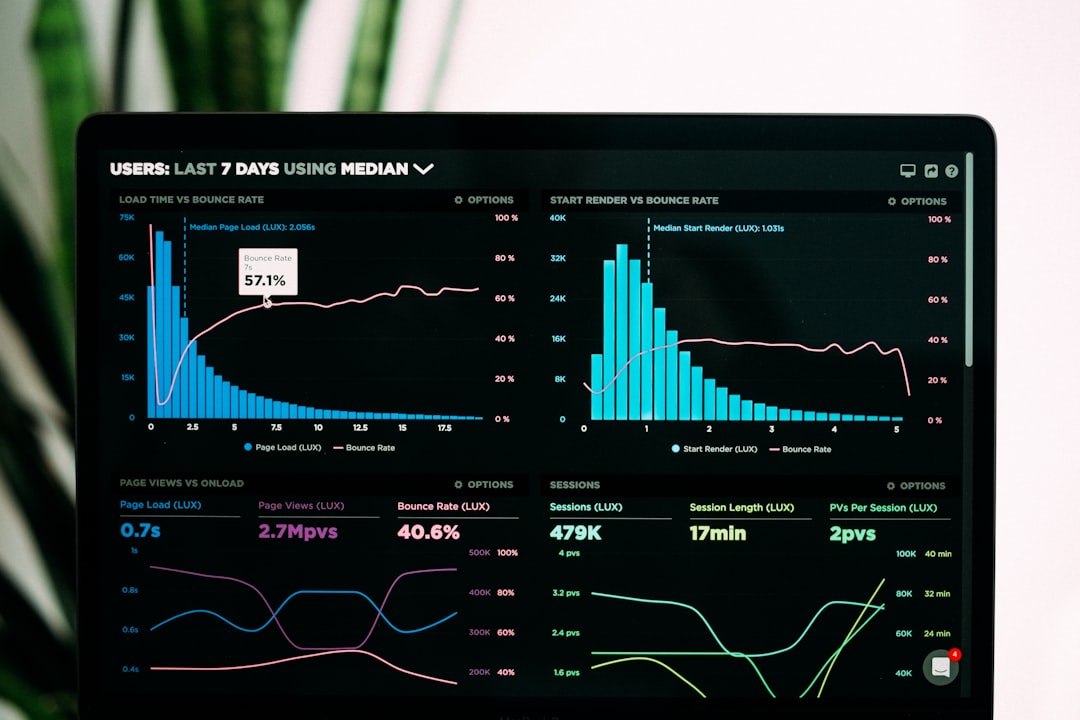Unlock encrypted content
Please enter your SSCE key to initiate on-the-fly decryption.
Decryption key: (Click cancel if you don't have the key)
Copied link to clipboard.
This feature is unavailable for free accounts. Upgrade now and enjoy all Premium benefits.
Go Premium!
This feature is unavailable for free accounts. Upgrade now and enjoy all Premium benefits.
Go Premium!
Please open this page in browser ( Google Chrome or Safari ) to use this feature.
Open In Browser
Smart Homes and the Future of File Management in 2030.
Random related video for this blog.
Copied share link to clipboard.
Smart homes have revolutionized the way we interact with our living spaces, offering convenience, efficiency, and security. As we look towards the future, the integration of smart technology is set to expand even further, with advancements in extraterrestrial data transfer, centralized file permissions, secure file archiving, space data storage, and quantum encryption. In this article, we will explore the exciting possibilities and trends in file management technology that we can expect to see in the year 2030.
The Evolution of Smart Homes
In recent years, smart homes have become increasingly popular, with devices such as voice assistants, smart thermostats, and automated lighting systems becoming commonplace. However, the future of smart homes goes beyond simple convenience. The integration of advanced file management technology will transform the way we store, access, and share our digital files. One of the key advancements in smart homes of the future is extraterrestrial data transfer. With the increasing interest in space exploration and colonization, the need for efficient data transfer between Earth and outer space is becoming crucial. Imagine being able to seamlessly transfer files between your home computer and a space station orbiting the moon, all with just a few clicks. This technology will not only benefit astronauts and scientists but also pave the way for new discoveries and collaborations on a global scale.Centralized File Permissions and Secure Archiving
Centralized file permissions will also play a significant role in the future of file management. Currently, managing file permissions across multiple devices and platforms can be a complex and time-consuming process. In 2030, smart homes will offer a centralized system that allows users to easily grant and revoke access to their files, ensuring privacy and security. Secure file archiving is another crucial aspect of future file management. As our digital footprint continues to grow, theneed for reliable and secure storage solutions becomes paramount. Smart homes will provide advanced file archiving capabilities, allowing users to securely store their files in a centralized location. This will not only protect valuable data from loss or damage but also enable easy retrieval and organization.
Space Data Storage and Bulk Uploading
Space data storage is a concept that may seem straight out of science fiction, but it is rapidly becoming a reality. With the exponential growth of data generated by individuals, businesses, and scientific research, traditional storage solutions are reaching their limits. In 2030, smart homes will leverage advanced technologies to store data in space, making use of satellites and other extraterrestrial infrastructure. This will not only provide virtually unlimited storage capacity but also ensure the long-term preservation of valuable information. Bulk uploading will also be a key feature of file management technology in 2030. With the increasing size and complexity of digital files, transferring them to the cloud or other storage solutions can be time-consuming and tedious. Smart homes will introduce bulk uploading features that allow users to transfer large volumes of data quickly and efficiently. Whether it's a collection of high-resolution photos or a large video file, bulk uploading will make the process seamless and hassle-free.Quantum Encryption and Future File Security
As the digital landscape becomes more interconnected, file security becomes a paramount concern. In 2030, smart homes will incorporate quantum encryption, a cutting-edge technology that leverages the principles of quantum mechanics to secure data. Quantum encryption is virtually unbreakable, offering a level of security that surpasses current encryption methods. This technology will ensure that files stored in smart homes remain protected from unauthorized access or cyberattacks. In conclusion, the future of file management in smart homes is set to be revolutionized by advancements in extraterrestrial data transfer, centralized file permissions, secure file archiving, space data storage, bulk uploading, and quantum encryption. These technologies will not only enhance our everyday lives but also open up new possibilities for collaboration, exploration, and data security. As we look towards 2030, it is clear that smart homes will continue to evolve, offering us a seamless and secure file management experience.Frequently Asked Questions (FAQs)
Question: How can smart homes benefit from extraterrestrial data transfer technology? Answer:
Extraterrestrial data transfer technology will enable smart homes to seamlessly transfer files between Earth and space stations, fostering collaboration and exploration on a global scale.
Question: What are centralized file permissions in smart homes? Answer:
Centralized file permissions allow users to easily grant and revoke access to their files across multiple devices and platforms, ensuring privacy and security.
Question: How will space data storage benefit file management in smart homes? Answer:
Space data storage will provide virtually unlimited storage capacity for smart homes, ensuring the long-term preservation of valuable information.
Question: What is quantum encryption and how will it enhance file security in smart homes? Answer:
Quantum encryption is a state-of-the-art technology that uses the principles of quantum mechanics to secure data. It will offer unbreakable security for files stored in smart homes, protecting them from unauthorized access or cyberattacks.
Case Studies 1. John, a photographer, utilizes the bulk uploading feature of his smart home to transfer thousands of high-resolution images to his secure file archive in a matter of minutes. This allows him to easily access and share his work with clients and colleagues. 2. Sarah, a scientist, uses the centralized file permissions feature of her smart home to grant her research team access to specific files and data. This ensures efficient collaboration and protects sensitive information. 3. Mark, a space enthusiast, leverages the extraterrestrial data transfer capabilities of his smart home to share files and data with a space station orbiting Mars. This enables him to contribute to ongoing research and exploration efforts.
By Amelia Isabella
Email: [email protected]
Related
Advanced Uploading Tools and Encryption Algorithms for Secure File Management.
June 3, 2023
Read More
Scalable Storage and Cloud Security: Real-time Collaboration and Secure Data...
June 3, 2023
Read More
The Future of Document Storage: Cognitive Computing and Biometric Authentication.
June 3, 2023
Read More
Cloud Computing: Empowering High-Speed File Downloads and Online Collaboration.
June 3, 2023
Read More
Popular
Latest
The Future of Digital Transformation: Exploring Smart Homes, Efficient File...
November 30, 2025
Read More
Exploring the Benefits of Cloud Storage and Innovative Technologies in...
November 26, 2025
Read More
The Future of Technology: Exploring Biohacking, Space Tourism, and Digital...
November 23, 2025
Read More
The Future of File Sharing: Streamlined Workflows for Photographers and...
November 19, 2025
Read More
Exploring the Intersection of Technology: From Cybersecurity to Augmented Reality...
November 16, 2025
Read More
The Future of File Management: Embracing Edge Computing and Efficient...
November 12, 2025
Read More
The Future of File Sharing: Exploring User-Friendly Solutions and Data...
November 5, 2025
Read More
The Future of Cloud Storage: How FileLu Empowers Creative Professionals...
November 2, 2025
Read More
The Future of Autonomous Technologies: Innovations in Robotics, File Sharing,...
October 29, 2025
Read More
Emerging Technologies Revolutionizing File Management: From Li-Fi to Robust Collaboration...
October 26, 2025
Read More
Emerging Technologies: Exploring the Impact of File Access Auditing, Genetic...
October 19, 2025
Read More
The Future of Data Storage: Exploring Advanced Encryption, Mobile Integration,...
October 5, 2025
Read More
Exploring the Future of Data Management: Security, Efficiency, and Cognitive...
September 28, 2025
Read More
Revolutionizing Data Management: Innovations in Storage, Security, and Sustainable Technology.
September 24, 2025
Read More






















